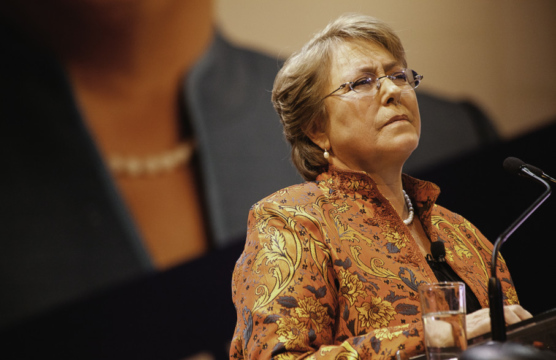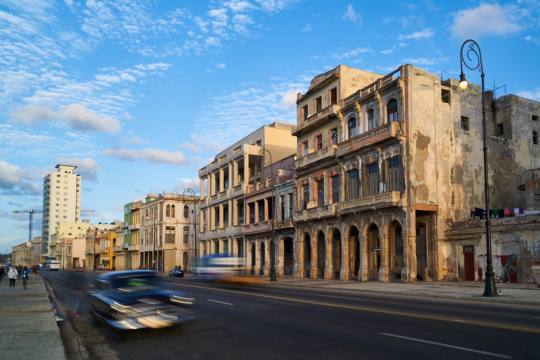In June 2011, Ollanta Humala was elected president of Peru after campaigning on a platform of change. Significant for Peru, but also for South America more broadly, Humala advocated for moderate, not revolutionary, change -- calling for a better and fairer distribution of the fruits of Peru's impressive economic growth and for lower levels of corruption and crime. That kind of program won't entail upending the prevailing system. It will, however, require serious institutional reform.
The Peruvian case dramatically illustrates wider trends in South America, where sustained economic growth and sound macroeconomic policymaking in recent years have coexisted with continuing governance challenges. Peru has not only been one of South America's top economic performers over the past decade. The Andean nation has also witnessed a drop in poverty levels, from more than 50 percent in the early 2000s to just more than 30 percent in 2010. Studies show that even the disparity between the rich and poor has narrowed somewhat.
Yet, since taking office in July, Humala has wisely insisted on making "social inclusion" in Peru a priority. The term, which has growing resonance throughout the continent, is defined not only in terms of reduced poverty and inequality, but also, significantly, in terms of increased political participation and wider access to economic opportunities. On these scores Peru has fared considerably less well, giving rise to profound distrust of political institutions and pervasive discontent, which Humala skillfully tapped into during his election campaign. The dissatisfaction is particularly acute in the southern highlands of Peru, where the country's important indigenous population is concentrated.
Despite Humala's discourse and good intentions, as well as the creation of a Ministry for Development and Social Inclusion designed to serve as the umbrella for an array of pre-existing social programs, it remains to be seen whether Peru will be able to pass two crucial tests. The first is to develop the institutional capacity to undertake more serious, far-reaching social reform efforts than Peruvian governments to date. Peru's conditional cash-transfer program, known as the Juntos ("Together") program, which gives subsidies directly to low-income populations, has been far more modest than similar programs in other parts of Latin America. In Brazil, for example, the Bolsa Familia ("Family Basket") program has been more ambitious and extensive, covering some 84 percent of the poor, compared to only 17 percent in Peru. The program was a key factor in lifting some 30 million Brazilians out of poverty from 2002 to 2010.
The second test for Humala is to balance efforts to devote more-serious attention and substantial resources to Peru's social agenda with the need to maintain the country's sound fiscal position and continued economic growth. Humala has generated high expectations, especially among poor, marginalized Peruvians, who voted for him in overwhelming numbers, meaning there is great pressure on him to deliver results. But at the same time, he cannot afford to put at risk continued foreign investment, especially in the mining sector, which helps fuel the high growth rates Peru has become accustomed to. For Humala, the initial signs are encouraging: He has been able to get the Peruvian Congress to adopt an increased tax on mining companies to help finance social expenditures, and he has also successfully passed a law that requires extensive consultation with communities affected by such investments.
Whether these measures will be effectively implemented, however, remains to be seen -- and could have implications that extend beyond Peru: The country is in many ways illustrative of the region at large, for the governance challenges it faces, though extreme, are shared to a greater or lesser degree by almost all South American states.
Complete article via World Politics Review.





















